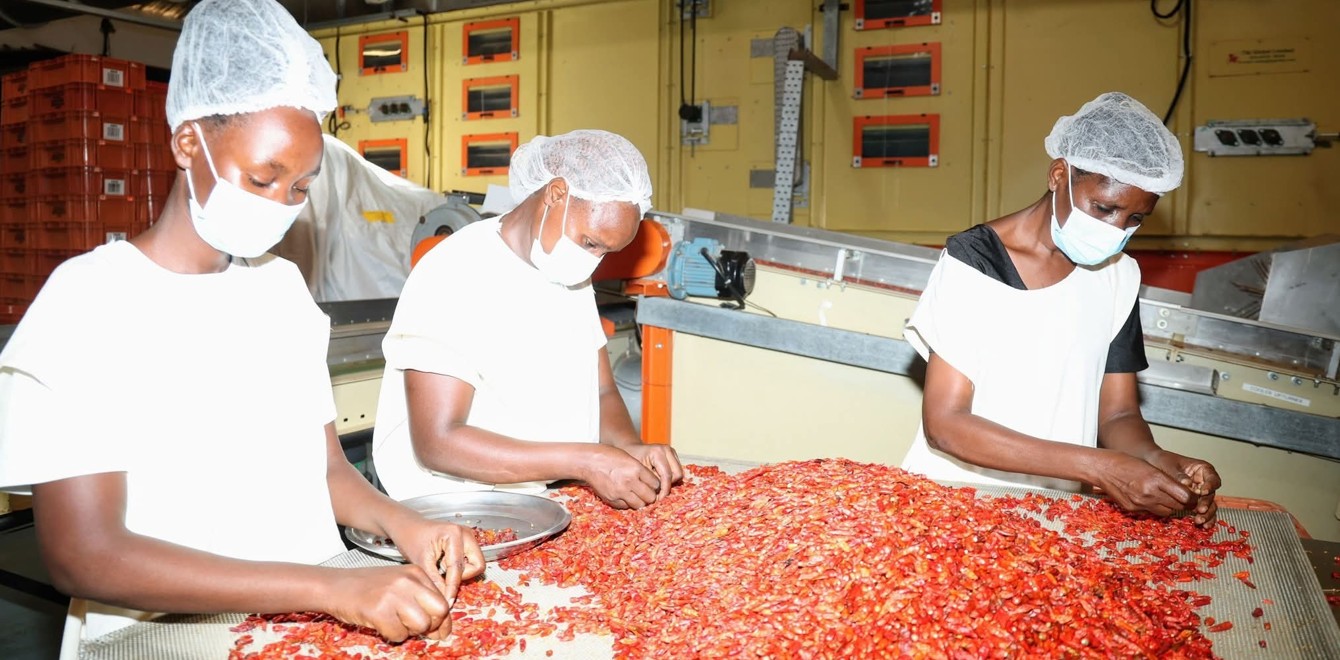Chilli farming transforms Kilifi economy as new processing plant boosts jobs and incomes

Karembo Kahindi, a local farmer from Ganze Sub-County, is among many whose lives have significantly improved since she began growing chillies.
Communities in Kilifi County are transforming their economic prospects through chilli farming, a growing agribusiness that is helping thousands escape poverty and food insecurity.
In areas like Ganze and Vitengeni, smallholder farmers are embracing the drought-resistant crop, driven by the promise of stable markets, better incomes, and improved livelihoods.
More To Read
- Kilifi County moves to disconnect defaulters as water bill debts hit Sh600 million
- Kilifi approves policy to offer succession legal services through county lawyers
- Landmark report reveals widespread abuse, killings of older persons in Kilifi
- Kilifi governor urges owners of long-closed hotels to sell them as county pushes for tourism revival
- Third Kilifi health forum opens with urgent calls for financing, digital solutions
- Activists in Mombasa urge authorities to improve business conditions for marginalised groups
Karembo Kahindi, a local farmer from Ganze Sub-County, is among many whose lives have significantly improved since she began growing chillies.
After being introduced to chilli farming by Equator Kenya Limited (EKL) four years ago, Kahinde now depends on the income to support her family and pay for her children's education.
“I began growing chillies on my half-acre farm in 2021, and it has been a turning point. Before this, very little could survive the dry conditions here, but chillies thrive even with limited rainfall,” she said.
Kahindi’s story mirrors a broader trend in Kilifi, where over 7,000 smallholder farmers have been contracted by EKL to cultivate African Bird’s Eye chillies.
Horticultural export
The company, a major player in Kenya’s horticultural export sector, has provided farmers with seedlings, land preparation support, training, and most importantly, a guaranteed market for their produce.
Lydia Mwarema, another farmer from Vitengeni, is now preparing to scale up her production.
“At the moment, I have 6,000 seedlings ready for planting on a larger piece of land. The financial returns from chilli farming are encouraging, and I want to make the most of it,” she said.
This surge in chilli farming is being fuelled by the recent establishment of a Sh230 million chilli processing factory in Malindi town, operated by EKL.
Direct and indirect employment
The facility, funded in part by the United Kingdom government through the Sustainable Urban Economic Development (SUED) programme, is providing both direct and indirect employment to more than 8,500 people across Kilifi, Tana River, and Lamu counties.
The SUED programme aims to boost urban economic development by adding value to Kenyan agricultural products before they reach export markets.
The UK provided a Sh43 million seed fund to help de-risk the investment for EKL, making the project viable and attractive for long-term sustainability.
Speaking during the factory’s commissioning, British High Commissioner to Kenya Neil Wigan highlighted the project’s impact on Kilifi’s economy.
“This processing plant is a symbol of the UK’s commitment to fostering economic growth in Kenya. By focusing on the chilli value chain, which offers high yields, climate resilience, and significant participation from women, we are supporting farmers to secure stable incomes while creating demand for agricultural inputs and services across the region,” Wigan said.
He further noted that the factory’s production capacity is set to more than double, from the current 70 tonnes of chilli annually to 150 tonnes, once fully operational.
Equator Kenya Limited’s director, Abubakar Ali, stressed the importance of investing in Kenya’s agricultural sector.
“We often describe Kenya as an industrialising nation, but there is still much ground to cover, especially in agriculture. Chilli farming shows how collaboration across different sectors can revitalise rural economies,” he said.
Income generation
Abubakar added that beyond providing inputs and technical support, the company is working closely with farmers to sensitise them on the business aspects of farming, ensuring they view it as a serious income-generating activity.
Kilifi Deputy Governor Florah Chibule welcomed the investment, thanking the UK government and private investors for showing confidence in the county.
“Our farmers, especially women and the youth, have long struggled with market access for their produce. This factory offers a solution and gives them hope for a better future,” she said.
Chibule also acknowledged the government’s role in promoting agribusiness and encouraged more investors to explore opportunities within Kilifi.
Principal Secretary for Investment Promotion Abubakar Hassan echoed these views, noting that the chilli processing plant is a prime example of how public-private partnerships and foreign investment can unlock economic potential at the grassroots level.
The factory’s establishment comes as Kilifi County experiences growing investor interest, with a steady influx of foreign capital and expanding market opportunities in the region.
Top Stories Today

















































